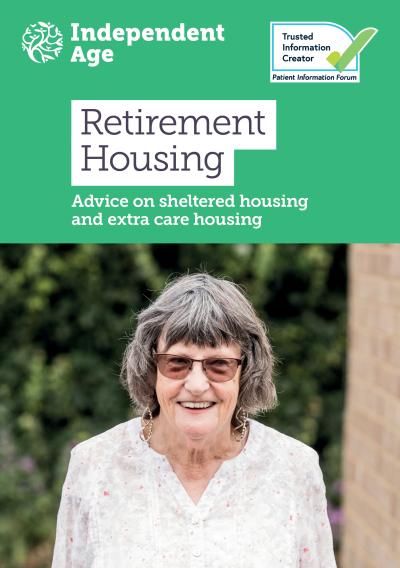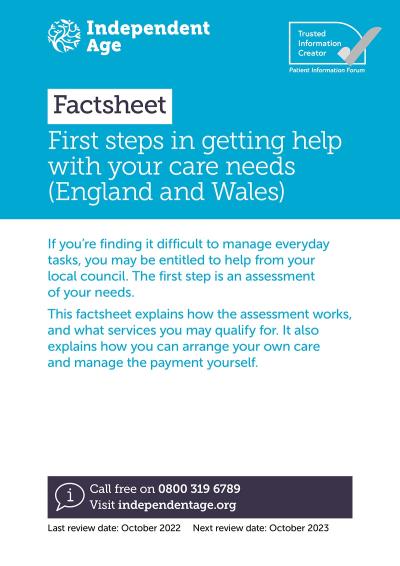Related publications

Retirement housing

Extra care housing is specialist housing designed for older people. It is similar to sheltered housing but also offers help with personal care and household chores, so it may be suitable if you have higher or changing care needs.
Extra care housing combines accommodation with care and support services. It comes in many forms, from small communities of flats and bungalows to retirement villages.
The facilities and care provided will vary, but extra care housing schemes usually include:
It is sometimes known by other names:
Our advice guide Retirement housing has more details about the types of extra care housing available.
The eligibility criteria will depend on the scheme, but residents are usually:
If you are part of a couple and one of you has greater care needs, extra care housing could make it possible for you to continue to live together.
Ask your local council for a free care needs assessment if you think extra care housing might be the right choice for you. This will look at what care you need and the best way for you to get it. You will usually be required to have a care needs assessment if you’re applying for council-run extra care housing, but it’s a good idea to get one even if you’re planning to buy or rent privately.
See our factsheet First steps in getting help with your care needs for more information on care needs assessments.
There are two key elements to extra care housing:
Accommodation
Each self-contained flat or bungalow is designed to help you live independently and will usually have:
Some larger extra care housing schemes may have facilities such as a hairdresser, GP practice or restaurant on site.
Care
The type of support will depend on your needs, which your local council’s social services department will usually assess. Care can include help to look after your everyday needs, such as:
The local social services department, the housing provider or private home care agencies may provide your care.
As well as daily support, extra care housing can provide unplanned care if you need it, and respond quickly to changing needs and emergencies.
Advantages to moving into extra care housing could include:
Extra care housing can sometimes prevent or delay the need for a move to a care home.
Extra care housing doesn’t suit everyone. Some possible disadvantages are that:
Some people may also find it difficult to adjust to living only with other people of the same age.
Extra care housing is available to rent or buy. Local councils, housing associations, charities or private companies may provide schemes.
If you want to rent
Most schemes are run by local councils and housing associations. They will usually have strict eligibility criteria – for example, you might need to be over 60 and have a minimum level of care needs. Contact your local council’s social services department for details of schemes operating in your area.
If you’re already a council or housing association tenant, you may be able to transfer to an extra care housing scheme.
A small number of properties are available to rent privately. There will probably be fewer eligibility criteria to meet if you rent this way, but the rent will probably be higher.
If you want to buy
Housing to buy is mainly available through private providers, usually on a leasehold basis in England and Wales. In general, your home will be freehold in Scotland. Before you buy, you should get independent advice on your rights and responsibilities from a solicitor.
Contact The Leasehold Advisory Service for advice and information on things to consider before buying a leasehold property.
Checking the quality of a scheme
There are several ways to find out about the quality of housing and care provided by an extra care housing scheme. For example, independent regulators inspect care and health services, including housing schemes that provide care services. You can check how they rate each scheme on their websites – there are different regulators for England, Scotland and Wales.
Ask if your scheme follows the Association of Retirement Housing Managers' Code of Practice. This is a government-approved set of guidelines that encourages good practice among private managers of retirement housing.
See our advice guide Retirement housing for more information.
Housing costs
There are different schemes available to help you with council tax charges, depending on your circumstances. If you’re living on a low income, you may also be eligible for Council Tax Support and Housing Benefit to help pay your rent.
Care costs
If you need care and support, you should get a free care needs assessment from your council. This assessment looks at how you manage everyday activities and whether your needs meet the national eligibility criteria for getting help. If the council decides your needs meet the criteria, they should then give you a financial assessment. This works out whether you qualify for financial help from the council to pay for the care you need.
See our factsheet First steps in getting help with your care needs for more information about council assessments.
Help with service charges
If you rent your home, you may also be able to apply for Housing Benefit to cover certain service charges. See our factsheet Housing Benefit for more information.
If you own your home, and you claim certain benefits such as Pension Credit, you may be able to get help with paying some service charges. See our factsheet Pension Credit for more information.

Our guide Retirement housing has more information.
Read our guide Choosing where to live for more information about different housing options.
By calling Independent Age's free and impartial Helpline, you can get information and advice from one of our friendly advisers, or order our free guides.